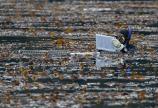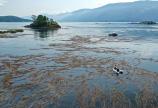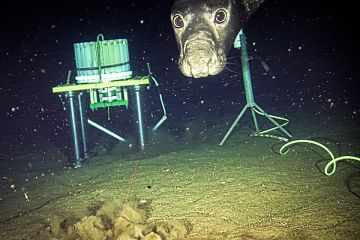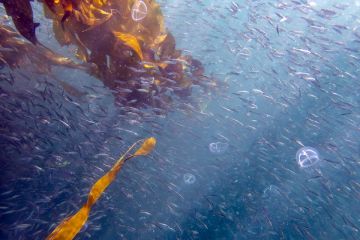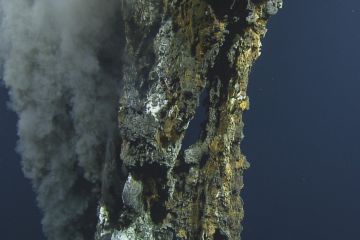Grad students research kelp forest ecosystems
- Anne MacLaurin
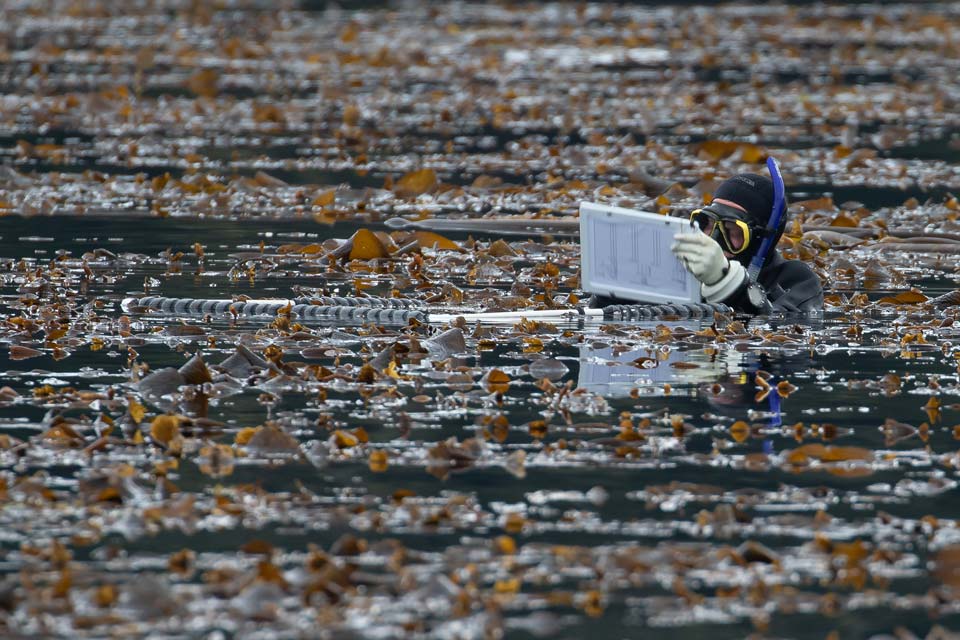
On World Oceans Day, two geography grad students are preparing for an immersive two weeks of remote field work studying kelp forests on BC’s central coast. Adhering to strict COVID-19 protocols, Brian Timmer and Lianna Gendall will be self-isolating for 14 days before they embark on their MITACS internship with the Hakai Institute.
Flying in a private seaplane to a remote location, the UVic grad students will spend about two weeks studying the kelp forests around Calvert Island. The Hakai Institute’s environmental work in the area has been deemed essential by the BC government and the researchers will have no contact with any of the communities.
“I fell in love with kelp as a scuba diver and then through my work with kelp forest restoration projects.”
—UVic grad student Brian Timmer
Timmer is doing a master’s degree on the remote sensing of kelp forests. He is finding ways to improve our understanding of how remote sensing can accurately capture kelp forests, even if they are submerged by tides and currents.
“By matching satellite and drone imagery we can better understand how to measure these critically important kelp forests,” says Timmer.
He adds that at the moment it’s fairly complicated to use satellite images of kelp in the Pacific Northwest—factors such as tides, weather, growing season and even the position of the sun in the sky have to line up perfectly.
Gendall is looking at old nautical charts, government surveys, satellite imagery and traditional ecological knowledge from around Haida Gwaii to better understand how kelp forests have changed across a century.
“The results of this study will provide a crucial dataset to assess future change in kelp ecosystems on the BC coast,” says Gendall.
Researchers know that kelp is decreasing in some areas of the Pacific Northwest despite it being such a rich ecosystem for many species such as herring and salmon. UVic geographer, Maycira Costa, supervises both Timmer and Gendall and leads the UVic Spectral Lab with a focus on ocean health.
“Kelp forests play an important ecological role in the health of our oceans so when we lose kelp beds, it impacts the habitat of many marine species,” says Costa.
Costa, Timmer and Gendall’s research is a collaboration with the Hakai Institute and the Pacific Salmon Foundation.
Photos
In this story
Keywords: oceans, research, environment, graduate research, mapping, fisheries
People: Brian Timmer, Lianna Gendall, Maycira Costa
Publication: The Ring

